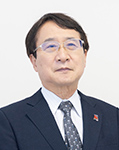Effects of a humanized anti-human IL-6 receptor monoclonal antibody on Nakajo-Nishimura syndrome
Vol 2, Issue 1, 2018
VIEWS - 8652 (Abstract)
Abstract
Nakajo-Nishimura syndrome (NNS) is a very rare hereditary disorder that has its onset in infancy with pernio-like skin rashes, and is accompanied by remittent fever and nodular erythema-like skin eruptions. The treatment of NNS is still under groping. Recently we encountered a case that was treated by corticosteroid and a humanized anti-human IL-6 receptor monoclonal antibody. As a result, the fever and skin rash was not improved sufficiently, and clinical symptoms of fat atrophy and joint contracture were gradually progressing. We herein report the effects of these agents and discuss the possibilities of new treatment direction.
Keywords
Full Text:
PDFReferences
- Arima K, Kinoshita A, Mishima H, et al. Proteasome assembly defect due to a proteasome subunit beta type 8 (PSMB8) mutation causes the autoinflammatory disorder, Nakajo-Nishimura syndrome. Proc Natl Acad Sci USA. 2011; 108(36):14914-14919. doi: 10.1073/pnas.1106015108.
- Kanazawa N: Nakajo-Nishimura syndrome: an autoinflammatory disorder showing pernio-like rashes and progressive partial lipodystrophy.
- Allergol Int 2012; 61(2): 197–206. doi: 10.2332/allergolint.11-RAI-0416
- Kanazawa N, Furukawa F: Autoinflammatory syndromes with a dermatological perspective. J Dermatol. 2007;34(9):601-618. DOI: 10.1111/j.1346-8138.2007.00342.x
- Almeida De Jesus A, Raphaela Goldbach-Mansky R. Monogenic autoinflammatory diseases: concept and clinical manifestations. Clin Immunol. 2013; 147(3): 155–174. doi: 10.1016/j.clim.2013.03.016
- McDermott MF, Aksentijevich I, Galon J, et al. Germline mutations in the extracellular domains of the 55 kDa TNF receptor, TNFR1, define a family of dominantly inherited autoinflammatory syndromes. Cell. 1999;97(1):133-144. PMID: 10199409
- Kang S, Tanaka T, Kishimoto T. Therapeutic uses of anti-interleukin-6 receptor antibody. Int Immunol. 2015 ;27(1):21-29. doi: 10.1093/intimm/dxu081
- Genovese, M. C. McKay, J. D. Nasonov, E. L. et al. Interleukin-6 receptor inhibition with tocilizumab reduces disease activity in rheumatoid arthritis with inadequate response to disease-modifying antirheumatic drugs: the tocilizumab in combination with traditional disease-modifying antirheumatic drug therapy study. Arthritis Rheum 2008; 58 (10): 2968–2980. doi:10.1002/art.23940.
- Ishikawa T. Effectiveness of tocilizumab on an infant case with Nakajo-Nishimura syndrome. Visual Dermatology 2017; 16: 136-137 (in Japanese)
- Kunimoto K, Kimura A, Uede K, et al. A new infant case of Nakajo-Nishimura syndrome with a genetic mutation in the immunoproteasome subunit: an overlapping entity with JMP and CANDLE syndrome related to PSMB8 mutations. Dermatology. 2013;227(1):26-30. doi: 10.1159/000351323.
- Honda-Ozaki F, Terashima M, Niwa A et al. Pluripotent stem cell model of Nakajo-Nishimura syndrome untangles proinflammatory pathways mediated by oxidative stress, Stem Cell Reports 2018; https://doi.org/10.1016/j.stemcr.2018.04.004
DOI: https://doi.org/10.24294/ti.v2.i3.1051
Refbacks
- There are currently no refbacks.
Copyright (c) 2019 Fukumi Furukawa

This work is licensed under a Creative Commons Attribution-NonCommercial 4.0 International License.
This site is licensed under a Creative Commons Attribution 4.0 International License.












